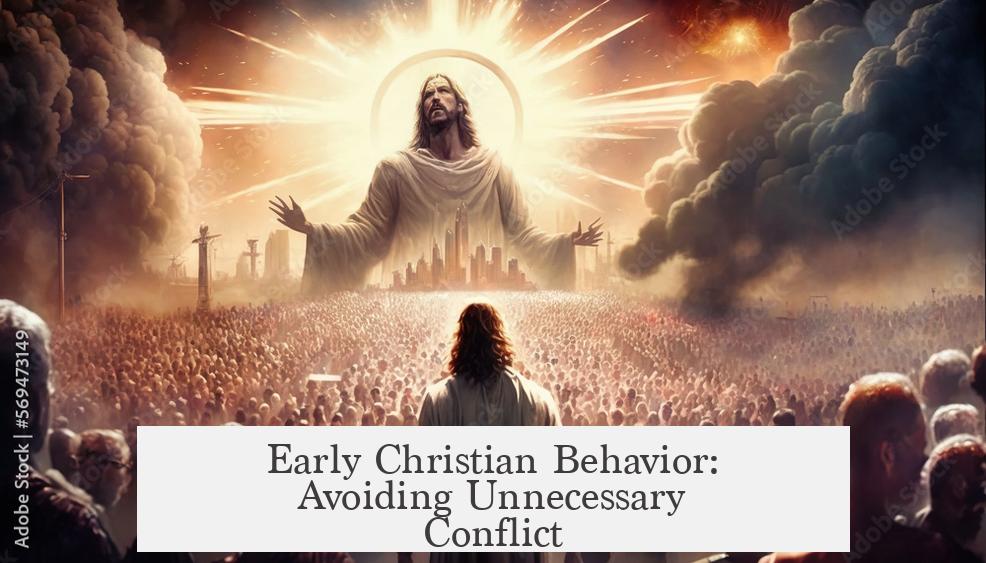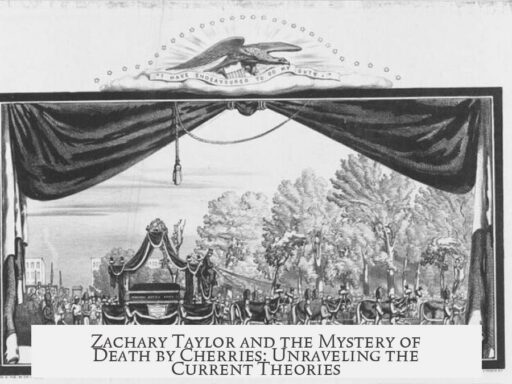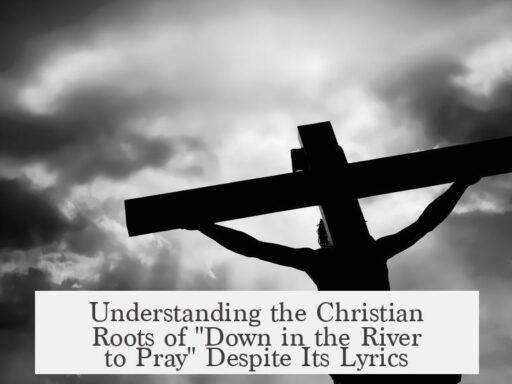Christianity spread rapidly despite facing significant restrictions due to a complex mix of social, cultural, and political factors blending together in the Roman Empire. Its growth was not simply a result of persecution or miraculous conversions but evolved through legal protections, cultural appeal, community structure, and moral influence.
There is limited evidence that widespread, systematic persecution by Rome occurred immediately or continuously during Christianity’s early years. Roman reactions to Christians often varied, ranging from indifference to sporadic punishment. Early emperors like Nero and later Diocletian engaged in persecution, but many accounts also describe Roman officials as unsure of how to treat this new sect. Authorities generally tolerated Christians as long as they did not cause disturbances or defy emperors blatantly.
Christianity initially functioned as a sect within Judaism, a legally recognized religion in the empire. Judaism enjoyed special protections, such as exemption from participating in the imperial cult. Early Christians benefited from this status, allowing them to spread relatively unmolested initially. This protection delayed direct, empire-wide suppression and gave Christianity time to establish its identity.
Early Christians’ behaviors and distinct practices generated suspicion among pagans. Rituals like the Eucharist were misunderstood as harmful or immoral by non-Christians, and Christians faced accusations of disloyalty to Rome. Despite this, Christian leaders carefully guided their communities to avoid conflicts with pagan authorities. Manuals promoting discipline discouraged participation in idol worship and supported clear separation from prevailing religious practices. Some Christian texts aimed to ease tensions by exonerating Roman figures such as Pontius Pilate, demonstrating efforts to navigate the political environment carefully.
During a period marked by cultural and moral decline in the Roman Empire, Christianity’s rigid moral discipline attracted many urban dwellers searching for order and meaning. The empire’s traditional pagan religion seemed to wane in influence, and new Eastern cults grew, often emphasizing severe asceticism and strict ethical codes. Christianity’s firm opposition to pagan gods and promise of clear, simple truth appealed to individuals disillusioned with the empire’s spiritual decay.
Central to Christianity’s appeal was the unique person of Christ, who combined familiar Abrahamic traditions with elements that resonated in pagan culture. Christ’s representation as both divine and human created an intimate, relatable spiritual figure. Unlike other religious leaders, Christ was portrayed as a personal friend and brother, fostering a deep connection with followers. Additionally, Christians saw Jesus as fulfilling Old Testament prophecies, strengthening their faith and providing historical continuity.
Christianity introduced a transformative world view, marking a new moral era. The faith urged followers to evangelize actively, spreading the message broadly rather than keeping it private. This call to missionary work distinguished Christianity from many other belief systems of the time. Believers were encouraged to live “in the world but not of it,” maintaining spiritual purity while engaging society.
The faith’s core virtues matched the needs of a changing Roman society. Increasing urbanization and social instability challenged traditional structures. Christianity’s emphasis on compassion, love for the poor, peace-making, and self-sacrifice resonated with many seeking social and moral support in turbulent times. These values helped Christianity build strong communities amidst empire-wide shifts toward absolutism.
Martyrdom played a crucial role in spreading Christianity. Willingness to die rather than renounce faith demonstrated profound commitment and inspired others. Unlike other religious groups, Christians refused to worship Roman gods or offer sacrifices, setting themselves apart and often inviting persecution. The stories of martyrs spread quickly and powerfully enhanced the movement’s appeal by showing unwavering conviction.
| Factor | Contribution to Spread |
|---|---|
| Roman Persecution | Irregular and often ambivalent, giving Christianity space to grow. |
| Judaism Connection | Legal protection as a Jewish sect delayed suppression. |
| Cultural Appeal | Moral clarity attracted a declining empire’s populace. |
| Unique Christ Figure | Personal and relatable spirituality fostered deep bonds. |
| Evangelical Mission | Active outreach created rapid community growth. |
| Christian Virtues | Addressed urban social needs and built resilience. |
| Martyrdom | Inspired witnessing and validated the faith’s seriousness. |
Key takeaways:
- Roman authorities often tolerated Christianity rather than enforce constant persecution.
- Early Christians benefited from Judaism’s legal protections.
- Christian moral rigor and cultural critique attracted those disenchanted with pagan Rome.
- The personal nature of Christ created a strong relational foundation for believers.
- Evangelism was a defining mark, encouraging believers to spread the faith aggressively.
- Christian values met emerging societal needs amid empire-wide transformation.
- Martyrdom served as powerful testimony, growing the church both spiritually and numerically.
How the Heck Did Christianity Manage to Spread So Quickly, Especially Under Such Significant Restrictions?

Christianity spread fast despite restrictions because Roman persecution was often limited, Christianity initially benefited from Judaism’s protected status, and the faith’s compelling message met deep cultural and spiritual needs in a declining empire. But that’s just the quick answer. Let’s dive deeper into the curious mix of restraint, strategy, and appeal that fueled this surprising growth.
Imagine trying to grow a new movement in a world that’s suspicious, sometimes hostile, and confusing about your presence. Christianity wasn’t just a new faith; it arrived within a vast empire with many challenges. Yet, it didn’t just survive—it thrived. Why?
Roman Attitudes: Not the Full-Blown Persecution Story You Might Expect
Contrary to popular belief, widespread, systematic Roman persecution of Christians wasn’t a constant tsunami of horror. It was more like occasional heavy rain showers – sporadic and conditional. For example:
- Reports exist about persecution under Nero, after the infamous fire of Rome, and Diocletian, who had a short but intense campaign against Christians.
- But the broader Roman administration often showed remarkable apathy or ambivalence.
Roman authorities often felt unsure about how to handle Christians. Pliny the Younger even asked the emperor for advice when Christians wouldn’t worship Roman gods. The emperor essentially replied, “If they disturb no one, leave them be.”
So the empire often gave Christians a chance to renounce their faith quietly—if they didn’t, punishments might follow, but these weren’t always sweeping or relentless.
This relative tolerance or ambivalence created breathing room for Christianity to establish communities, teach, and grow.
The Jewish Connection: Christianity’s Protective Umbrella
In its infancy, Christianity wasn’t seen as a completely separate religion. It was a sect within Judaism. This gave early Christians a golden ticket:
- Judaism enjoyed unique legal protections in the Roman Empire as an ancient, respected religion.
- Jews were exempt from participating in the Imperial cult, a big deal back then.
Because of this association, early Christians often slipped under the radar. As long as they appeared to be following Jewish tradition, they avoided immediate crackdown. This legal grey zone bought Christianity critical time to spread its roots.
Early Christian Behavior: Avoiding Unnecessary Conflict

Christianity didn’t just barge into Roman life recklessly. Early Christians carefully navigated Roman expectations:
- They avoided meat sacrificed to idols. A small but symbolic rule that showed respect without conceding their beliefs.
- Writings from Tertullian instructed Christians on how not to offend pagan customs while standing firm in faith.
- The Gospel of John even goes out of its way to paint Roman authorities, like Pontius Pilate, more favorably than Jewish leaders, likely to reduce tension with Roman rule.
This tact reduced antagonism and allowed Christianity to grow without being immediately crushed. They didn’t call out Roman gods directly, but they refused to worship them, a bold stance wrapped in subtlety.
Why So Many Romans Were Drawn to Christianity: A Culture in Decline
The Roman Empire wasn’t at its best during Christianity’s rise. Many complained society was degenerating, morals were slipping, and traditional beliefs offered little comfort.
Christianity’s strict moral codes, emphasis on compassion, and clear distinction from “false gods” offered a moral anchor amid cultural chaos.
Others were turning towards Eastern mystery cults, but Christianity’s formula of hard discipline combined with genuine community struck a chord. It offered:
- Clarity in chaotic times.
- Hope through a relatable, friend-like God—Jesus.
- A new model of living focused on love, sacrifice, and peace.
The Unique Person and Message of Christ: The Game Changer
Christ wasn’t just another spiritual figure. He was a singular combination:
- Rooted in Abrahamic tradition, fulfilling Jewish messianic prophecies.
- Resonated with pagan archetypes of a savior.
- Yet approachable—being both divine and human, Brother and Friend.
This relational and imminent God was unlike anything the Roman world had seen—someone who suffered, loved, and invited personal connection.
Evangelism and Mission: Christianity’s New Paradigm

Christianity gave believers not only faith but a mission. The idea that Jesus entered history and changed it created a stark divide:
- The world before Christ and the world after.
- Morality had new rules; Christian living meant more than personal virtue—it meant spreading the faith.
- Believers were “in the world but not of it,” creating tight communities within but separate from broader Roman society.
Evangelism was baked into the faith, creating a social movement that pushed growth exponentially.
Christian Virtues Perfect for Imperial Society’s Needs
As urbanization swelled and traditional hierarchies crumbled, people felt isolated. Christianity offered virtues tailored for this new reality:
- Compassion and love for the poor.
- Peacemaking instead of honor battles common in Roman culture.
- Self-sacrifice fostering strong community bonds.
These virtues directly met the needs of society’s many displaced or disillusioned people. Moreover, stories of martyrs who gave their lives became powerful testimonies.
Martyrdom: The Ultimate Witness
Few belief systems inspire their followers to face death calmly, but early Christians did:
Martyrs refused to offer incense to Roman gods—a striking act of steady defiance.
Their willingness to die rather than renounce faith spread through Christian and non-Christian circles alike.
Martyr stories acted like viral marketing in the ancient world, inspiring more converts through sheer example.
Wrapping Up: A Perfect Storm of Factors
So, the rapid spread of Christianity under significant restrictions wasn’t magic. It was a complex mix of historical, cultural, strategic, and spiritual factors intertwining:
| Factor | Impact |
|---|---|
| Limited/conditional Roman persecution | Allowed Christian communities to persist and grow without constant fear of obliteration. |
| Initial association with Judaism | Provided legal protection and a shield against immediate suppression. |
| Careful navigation of Roman society | Reduced antagonism and suspicion, enabling coexistence. |
| Cultural appeal amid empire decline | Met the deep spiritual and moral hunger of the time. |
| Compelling figure of Christ | Offered a relatable, intimate God unmatched by other religions. |
| Eschatological and evangelical drive | Created purposeful, engaged communities focused on spreading the word. |
| Suitability of Christian virtues | Addressed social fragmentation and urban challenges effectively. |
| Martyrdom as powerful witness | Inspired wide conversions through radical commitment and sacrifice. |
In short, Christianity didn’t just survive despite restrictions—it turned those restrictions into catalysts for growth, using protected status, social savvy, deep cultural resonance, and an inspiring message to spread far and wide.
Next time you wonder how something so countercultural expanded in the most unlikely environment, remember: history rarely runs on sheer force alone. It runs on smart adaptation, deeply felt beliefs, and people ready to risk it all for what they believe is true.
How did sporadic Roman persecutions affect early Christian growth?
Persecutions were not constant or systematic. Romans often showed caution or ambivalence, sometimes punishing only persistent Christians. This limited repression allowed Christianity to maintain and slowly expand.
Why did Christianity initially benefit from being linked to Judaism?
Christianity began as a Jewish sect, gaining protection since Judaism was legally recognized and exempt from Imperial cult worship. This status shielded early Christians from immediate crackdowns.
What role did Christian community behavior play in their survival?
Early Christians avoided conflicts with Roman customs, rejected idolatry, and tried to engage respectfully with authorities. This cautious approach reduced backlash and helped the faith spread.
Why did Christianity appeal to people during the decline of Roman culture?
Amid cultural decay and faith loss, Christianity’s strict morals and rejection of pagan gods offered clear, disciplined guidance. It attracted those seeking stability and meaning.
How did martyrdom influence Christianity’s rapid spread?
Martyrs showed extreme dedication by dying for their faith. Their stories inspired others and spread the message widely throughout Roman society, strengthening the community.




